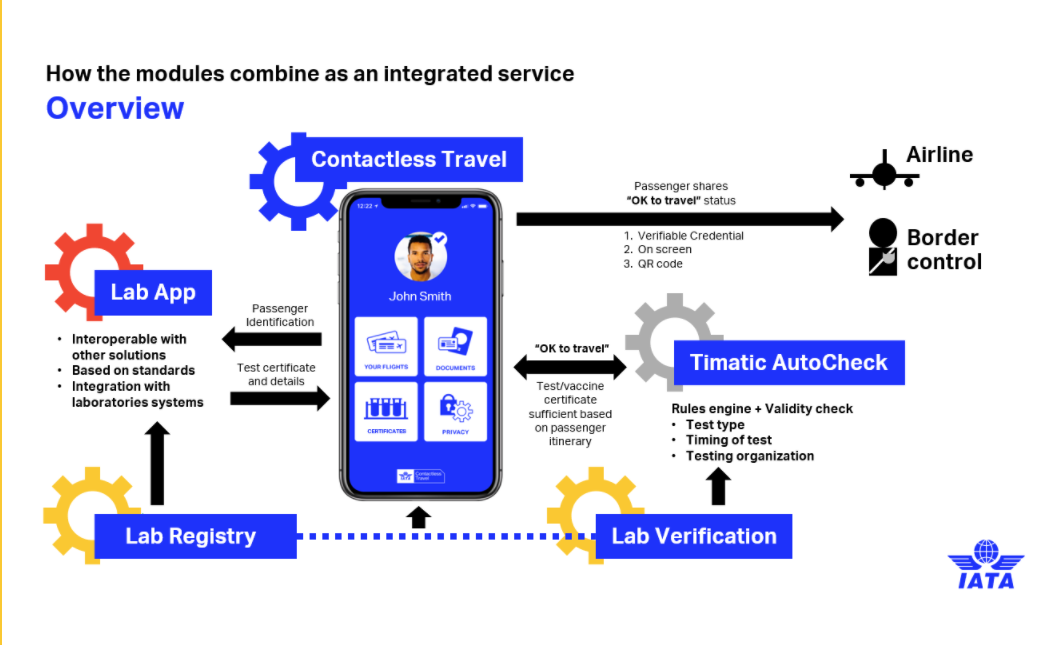The International Air Transport Association (IATA) has launched the Travel Pass initiative – a global and standardized solution to validate and authenticate all country regulations regarding COVID-19 passenger travel requirements.
The platform will inform passengers on what tests, vaccines and other measures they require prior to travel, details on where they can get tested and giving them the ability to share their tests and vaccination results in a verifiable, safe and privacy-protecting manner is the key to giving governments the confidence to open borders.
What is IATA?
IATA is the trade association for the world’s airlines, representing some 290 airlines or 82 per cent of total air traffic. Currently, IATA is among the loudest voices in the aviation industry that are pushing for the immediate resumption of air travel through the lifting of some COVID-19 restrictions.
Why is IATA doing this?
The airline industry is facing its worst crisis since 9/11. Some 25 million jobs are at risk of disappearing with plummeting demand for air travel amid the COVID-19 crisis.
Globally, the livelihoods of some 65.5 million people are dependent on the aviation industry, including sectors such as travel and tourism. Among these are 2.7 million airlines jobs.
What will travel pass do?
The main priority for airlines is to get people traveling again safely. In the short term that means establishing confidence in governments that systematic pre-departure COVID-19 testing can work as a replacement for quarantine requirements. And that will eventually develop into a vaccine program.
The IATA Travel Pass is expected to be a solution for both. It is built in modules and is based on open source standards. It can be used in combination with other providers or as an end-to-end solution. On an open source platform, the source code is made freely available for possible modification and redistribution.
Role of 9/11
Experts are of the opinion that if travelers could get used to air travel measures adopted in the aftermath of the 9/11 attacks, the IATA Travel Pass will also be globally accepted.
In the years preceding the terrorist attacks of September 11, 2001, the United States lacked a comprehensive national policy and strategy for aviation security. The country’s approach to aviation security had largely been shaped by past events such as the bombing of Pan Am flight 103 in December, 1988.
Post 9/11, there were two primary changes in airport security: the federalization of security screening for passengers at all commercial airports in the US and the requirement to screen all checked baggage.
Who are participating in travel pass initiative?
The Gulf’s Big 3 airlines – Emirates, Etihad and Qatar Airways – are currently trialing the platform. Apart from having a first-mover advantage, Gulf airlines will also be able to guide the development of the platform.
Governments, through their flagship airlines, will be able to shape the development of the app and provide feedback.
Globally, IATA is planning pilots with British Airways and Singapore Airlines in February. And then subsequent to the results of those pilots, the industry will be onboarding additional pilots and tests with Etihad, Qatar Airways and Emirates.
When will it come out?
The go live date for the first version of the app is March 1 – the next iteration of the platform with additional functionality will be launched in April. It can be found on iOS and Play Store.
What will the app have?
IATA has used SDK (software development kit) to build the platform, which means airlines will be able to implement the pass within their own app. This will make it easier for customers who will not have to download multiple apps on their phone.
The itinerary will be imported from departure controlling systems like Amadeus and others. Apart from allowing multi-segment itineraries, it will have verification and reference implementations in place. The passenger will also be able to check for the latest requirements.
In the second version, the platform will be able to update based on current itineraries and the latest regulations. It will allow travelers to register minors, dependents as well as groups. Passengers will also be able to upload other travel documents for domestic use if passport information is not available. It will be multilingual, and will have some search functionalities added to it.
What’s needed first?
The Travel Pass will require the existence of a global standard in aviation regulations, paperwork and testing.
Countries must accept digital certifications instead of paper-based certifications, which are hard to process and take a long time to validate and verify during the journey of the passengers. It’s prone to fraud as well.
IATA has been urging governments to adopt digital certifications for both testing and vaccination. In addition to that, the industry body is also pushing for the establishment of a globally accepted framework for testing rather than quarantine.
What are digital certificates?
A digital certificate is used to encrypt online information communications between an end-user’s browser and a website. Digital certificates are used by all major web browsers and servers to provide assurance that published content has not been modified by any unauthorized actors, and to share keys for encrypting and decrypting web content…



